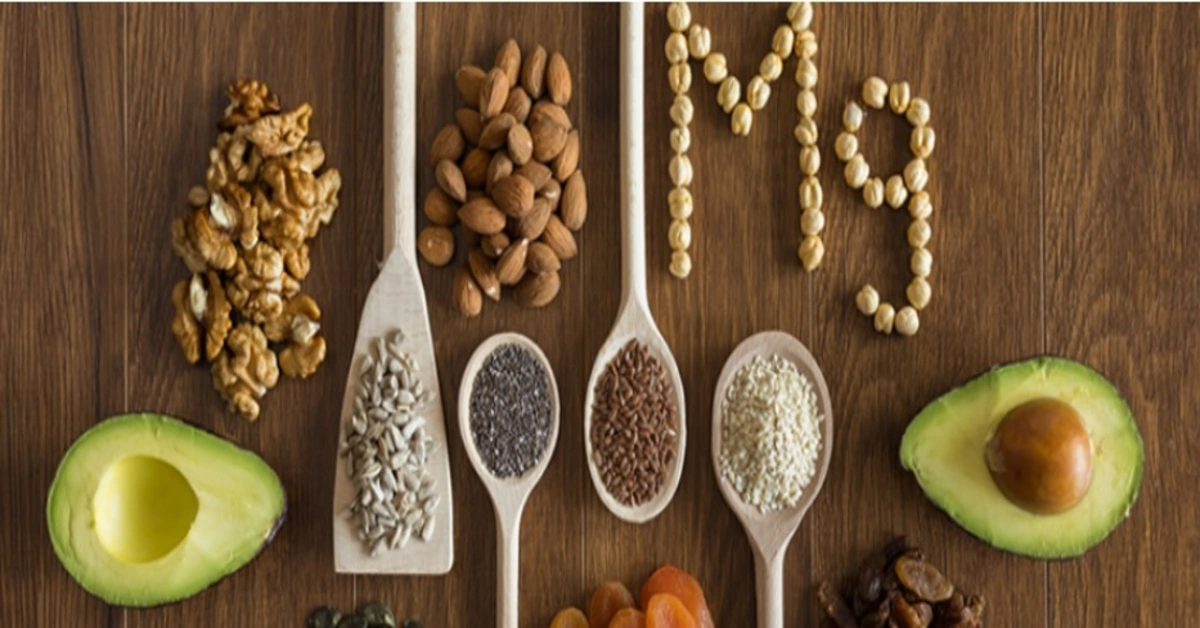We all know that specific vitamins and minerals are essential for the smooth functioning of the body. So magnesium is one of the minerals that has been getting a lot of attention. As the fourth most abundant mineral in your body, magnesium plays a vital role in maintaining your well-being. In this article, we will dive deep into what magnesium is, its benefits, and different sources of magnesium.
Magnesium: A Vital and Abundant Mineral
Magnesium is a vital mineral that our bodies require for many functions. It supports muscle and nerve health, strengthens bones, and influences our mood. About 60% of the magnesium in our bodies is stored in bones, while the rest is in muscles, soft tissues, and fluids. This mineral is commonly found in various foods, added to some products, available as a supplement, and included in certain medications. Magnesium plays a key role in over 300 enzymes that assist with functions like protein building, muscle and nerve management, blood sugar control, and blood pressure regulation.
Magnesium Magic: Discover Its Health Benefits
1. Essential for bone health
As much as calcium is essential for bone health, magnesium is equally important. It plays a significant role in maintaining bone density and strength. Also helps calcium to absorb and converts vitamin D into its active form. Adequate magnesium levels can help prevent osteoporosis and other bone-related disorders.
2. Enhance muscle function
Magnesium is important for strong muscles because it helps them relax. When calcium is released, muscles contract. Magnesium acts as a natural blocker for calcium, controlling how much calcium enters muscle cells. This balance between calcium and magnesium helps muscles contract and relax properly, reducing tension and stiffness. Taking a magnesium supplement can improve performance and lower the risk of injuries for athletes and active individuals.
3. Promote heart health
Magnesium is important for your heart. It helps keep cholesterol levels normal, lowers blood pressure, and keeps your arteries healthy. It also helps control your heartbeat by managing calcium. Magnesium relaxes blood vessels, which helps lower blood pressure and keeps cholesterol balanced. Studies show that having enough magnesium can lower the chances of heart disease and stroke.
4. Boosts mental health and improves brain function
Research suggests that magnesium can enhance your mood and decrease anxiety and depression by supporting serotonin, a chemical that manages mood. It also assists nerves in communicating with one another and the body by backing neurotransmitters, the chemicals responsible for sending messages. This helps ensure that signals are delivered accurately. In addition, magnesium supports good brain function, which can lead to better learning, memory, and emotional stability.
5. Improve sleep quality
Magnesium has a calming effect on the nervous system. It may boost sleep quality by regulating melatonin, the hormone that controls sleep patterns. It promotes relaxation and can help with insomnia symptoms.
6. Reduces inflammation
Magnesium plays a role in managing calcium levels and decreasing inflammation. It enhances the effectiveness of some enzymes, helping to reduce inflammation after injuries. Furthermore, magnesium helps break down scar tissue that can accumulate and disrupt organ function. Crucially, it aids the liver and blood-cleansing enzymes in lowering inflammation and keeping the immune system from becoming too active.
7. Supports energy production
Magnesium is important for creating ATP, the main energy carrier in our cells, which increases energy production. This mineral supports over 300 enzymes that help convert proteins, fats, and carbohydrates from our diet into energy. It also aids in regulating blood sugar, leading to a steady energy supply and less tiredness. Getting enough magnesium is crucial for maintaining consistent energy levels and for the effective use of energy in our bodies.
Top Sources of Magnesium: Fueling Your Health Naturally
1. Leafy vegetables
A good source of magnesium is dark green leafy vegetables like spinach, kale, collard greens, turnip greens, and mustard greens.
2. Nuts and seeds
Almonds, cashews, pumpkin seeds, squash seeds, and pine nuts are all good sources of magnesium
3. Legumes
Legumes, such as beans, peas, and lentils, are excellent sources of magnesium.
4. Shilajit
Shilajit is a natural substance made from decomposing plants and minerals over centuries under high temperatures and pressure. It is rich in minerals, including magnesium, making it a powerful magnesium supplement. Shilajit is often used in traditional medicine because it can boost energy, enhance stamina, and support overall wellness.Its high magnesium content can support healthy brain function, boost mood, and support muscle function.
5. Whole grains
Whole grains like wheat, oats, and barley, as well as pseudocereals like buckwheat and quinoa, are excellent sources of many nutrients, including magnesium.
6. Dairy Products
The products that are made from the milk of animals, primarily cows, goats, and sheep are good source of magnesium. These foods include Low-fat milk, yogurt, and cheese
7. Seafood
Fatty fish like Atlantic salmon, white tuna, yellowfin tuna, and Atlantic mackerel are good sources of magnesium
8. Fortified foods
Fortified foods are products that have had vitamins, minerals, or other nutrients added to them that do not naturally occur in significant amounts. Examples of fortified foods rich in magnesium are breakfast cereals, plant based alternative and snack bar
9. Water
It contain small amount of magnesium irrespective of its type such as normal water, tap water etc
Conclusion
Magnesium is an essential mineral with numerous health benefits, from supporting bone health to enhancing mental well-being. Various dietary sources are available, so it is possible to meet your magnesium needs through a balanced diet. Additionally, supplements like shilajit can provide an alternative way to boost magnesium levels. Ensuring adequate magnesium intake can support overall health and enhance your quality of life.
If you find this article helpful, click here for more.









